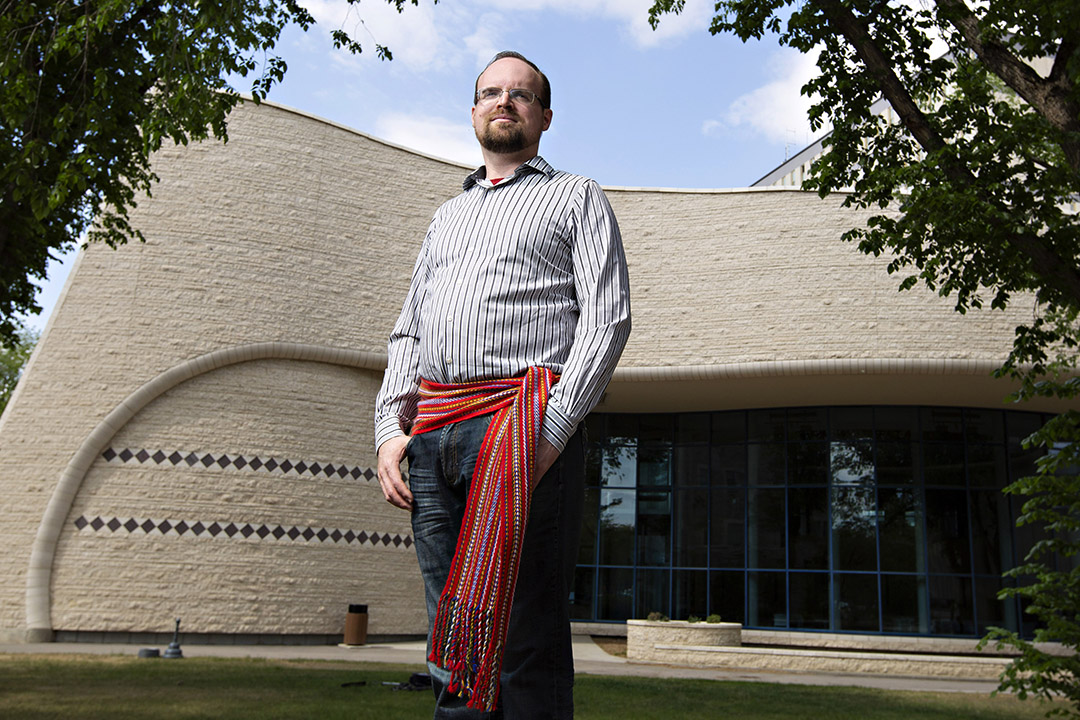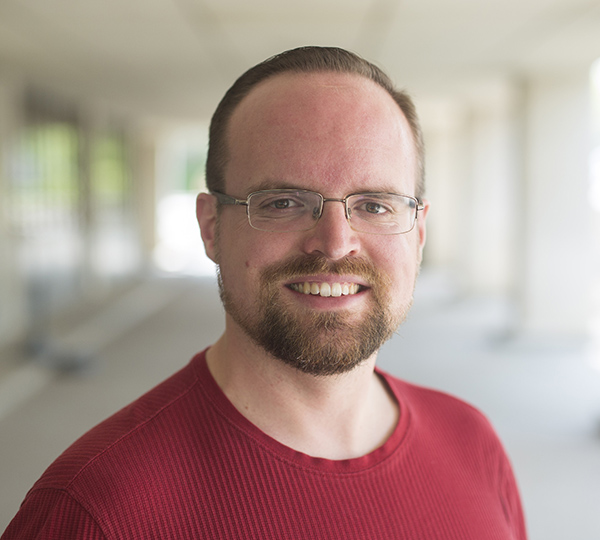
There’s more to McInnes than meets the eye
Dr. Adam McInnes (MD) isn’t afraid to jump into things with both feet.
By Donella HoffmanA graduate of the University of Saskatchewan (USask) College of Medicine, McInnes is also: an award-winning PhD student; a local Métis leader; a Greater Saskatoon Chamber of Commerce board member; and president of MedHack (+), a hackathon he founded in 2016 to solve problems in health care through technology.
Recounting key moments of his journey, McInnes admits his path has included twists and turns—and some adversity as well.
He tried to talk himself out of going to medical school
“I always knew I wanted to be a scientist, I just couldn’t figure out what type.”
After high school, McInnes didn’t have a lot of resources or direction so he worked. He joined the army reserves, built farm machinery, had a job in the oil patch, and worked in group homes with people with developmental disabilities.
One day, McInnes heard Dr. Mehmet Oz on Oprah, explaining that he loves medicine because he gets to learn from his patients while making a difference in their lives.
“I thought, ‘That’s perfect, that’s exactly what I want to do,’” McInnes said. “The next thought that entered my head was, ‘Holy crap, I don’t want to do that. That’s too much money, too much time, too much school. I spent the next two weeks trying to talk myself out of it, but I couldn’t do it.”
McInnes started medical school at USask in 2011, at the age of 28.
A mouse inspired his choice to pursue tissue engineering
In his early teens, McInnes saw a TV feature on the Vacanti Mouse. Researchers had grown cartilage on its back in the shape of a human ear.
“Later, I thought, ‘You know, that mouse is pretty cool’ and I think there’s a lot of potential in that field because it can revolutionize the way we treat diseases and medicine.”
In 2019, as he began his PhD research, McInnes was awarded a $150,000 Vanier Scholarship to develop a new gel and scaffold design to promote tissue growth for 3D printing of artificial organs that may one day be used for transplants. The Vanier recognizes top-tier doctoral students.
“He brings a real enthusiasm to the lab and passes it on to those around him,” said Dr. Michael Moser (MD), who co-supervises McInnes’s PhD research along with Dr. Daniel Chen (PhD). “Not only is he a skilled scientist, but thanks to his clinical medical training he appreciates the big picture and sees the ways his research will ultimately help patients in the future.”
He wasn’t planning to get involved in Métis politics
Growing up on a farm near Shaunavon in southwest Saskatchewan, McInnes knew he was Métis but had no opportunities to experience Métis culture. In 2016, he stumbled across an online post about a meeting to revive Saskatoon Métis Local 126, which supports post-secondary Métis students in Saskatoon. McInnes went to check it out and became vice-president when the original candidate didn’t show. After the president moved to a new role, McInnes stepped in.
Since then, he’s worked extensively with Glen McCallum, president of the Métis Nation–Saskatchewan, who said McInnes is a very credible role model.
“He’s been a student, he knows that it can be tough, but he shows Métis students they can succeed.”
He speaks about mental health, learning disabilities and autism

Near the end of medical school, McInnes said he “crashed and burned pretty bad” and was ultimately diagnosed with bipolar disorder, which causes his moods to cycle between high and low over time.
More recently, his diagnoses of ADHD and autism were confirmed, with the latter being difficult to nail down because McInnes—who has a Mensa-level IQ—has adapted to the diagnosis and doesn’t display typical autistic traits.
He is thankful for family, friends and faculty who have helped him move forward when “some of these roadblocks have hit and slowed me down.”
In Moser’s eyes, they’ve made McInnes a more resilient researcher.
“He has faced many challenges in his life and this extensive life experience arms him with the strength to navigate the many obstacles found in graduate studies and in biomedical engineering research.”
McInnes urges anyone who is experiencing mental health issues to seek help.
“Once I figured out what was going on in my head, I found ways to manage it and channel it so I can create the world for myself that I want to have and help make the world a better place by me being here.”

